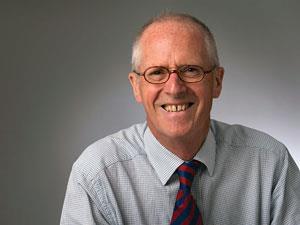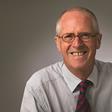Science teachers can take the lead within a new College of Teaching, and show other teaching communities the way, says John Holman

Each year, I survey the first year undergraduates I teach at York, asking them ‘What made you decide to study chemistry at university?’ Each year, the top response is the same: my chemistry teacher.
Everyone, from the secretary of state for education down, realises that teachers are what make the difference in education. I believe that if we want to get further improvement in education, it is best achieved from the bottom up rather than the top down. In other words, it is by treating teachers as true professionals and giving them control over their own standards and professional development.
Fortunately, there is a growing realisation of the need to professionalise teaching. Medics control their own professional standards through the royal colleges (of surgeons, physicians, general practitioners) and are obliged to keep their professional knowledge up to date. Teaching should be no different. And yet, until now, there has been no professional body for teachers with the clout of the medical royal colleges.
College of Teaching
I hope this is about to change. There is a strong movement, backed by most of the teaching unions, to establish an independent College of Teaching with a royal charter. The Department for Education has even promised no-strings funding to help get it started. If all goes well, a College of Teaching, controlled by teachers, for teachers, will come into existence by the end of 2015. The long term goal is for the college to provide ways for its voluntary teacher members to share professional knowledge and professional development, and eventually to set standards for entry to the profession and for professional conduct.
This movement to bring power to the teaching profession matters, because professional organisations know better than government what their standards should be, and they can set benchmarks for the professional learning journey from newly qualified to expert teacher. Increasing professional autonomy increases status, and so makes the teaching profession more attractive to much-needed new entrants.
In time, the hope is that the College of Teaching will influence the profession in the powerful way that medical royal colleges do. But there are some key differences between medicine and teaching. For one thing, most of the medical colleges have existed for over 100 years, and they have had time to earn the respect of professionals and the public. The College of Teaching can’t be expected to win this overnight. For another thing, teaching is a huge profession. There are about 450,000 teachers in the UK, compared with 35,000 general medical practitioners. Clearly, a College of Teaching will need to reflect these numbers and the wide diversity among teachers, from early years, through primary to A-level specialist teachers. This is where professional bodies like the Royal Society of Chemistry (RSC) will come in.
Science teaching in the lead
Science teachers in the UK can draw on powerful support. We have strong subject associations, like the Association for Science Education and the RSC. We have a strong national academy of science: the Royal Society, which is influential on government policy. We have strong professional development networks: the National Science Learning Network and the professional bodies; and we have supportive charitable foundations, especially the Gatsby Foundation, Nuffield Foundation and Wellcome Trust.
Teachers need space to develop and refresh their professional skills, and the best way to bring that about is to give professional autonomy to all teachers
Drawing on these supporters, I believe science teachers can take the lead within the new College of Teaching, showing other teaching communities the way. Take chemistry for example: the RSC is strongly committed to professional development, and has formed a partnership with the National Science Learning Centre in project ENTHUSE. The RSC is accredited to award Chartered Science Teacher status, a professional benchmark showing that a teacher has reached a high level of professional competence. The RSC is committed to working with the College of Teaching so that in time, this standard could align with the college’s membership standard. It is so much more appropriate for chemistry teachers, through the RSC and the College of Teaching, to set their own professional standards rather than being handed them by education ministers who know little of the details of what it takes to make a good chemistry teacher.
There’s a long way to go before the College of Teaching and Chartered Science Teacher are embedded in our profession. How will we know when we have got there? It will be when a headteacher, looking for a chemistry leader, advertises for someone with professional status awarded by the RSC and the College of Teaching, and when a recently qualified science teacher, when asked about the next step in their career knows that this is the status they must aim for.
Unfinished business
Chemistry is riding a wave of popularity and A-level chemistry numbers have risen by 43% over the past 10 years. But there is much more still to do: we need chemists now more than ever. Graduates, like those I teach at York, will develop innovative solutions to 21st century challenges, but technicians are essential too, and we need a public who understand chemistry in its industrial and social context so they welcome rather than resist chemistry’s contribution to their health and wealth. It will be teachers who inspire the new generation of chemists, but it’s hard to be inspirational day in, day out under all the pressures of modern schools. Teachers need space to develop and refresh their professional skills, and the best way to bring that about is to give professional autonomy to all teachers. In the drive to bring power to the profession, science teachers can be in the lead.












No comments yet